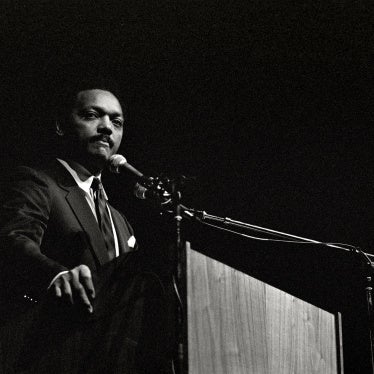In 1948, with World War II and the struggle against fascism fresh in their minds, drafters of the Universal Declaration of Human Rights affirmed the right to "universal and equal suffrage" as a basic human right.
Yet the aspiration to universal and equal suffrage in the United States, which helped define the civil rights struggle in the 1950s and '60s, now appears to be losing its luster. Instead of continuing to serve as an ideal, policies involving the right to vote have been diminished by politicization of the franchise. Instead of promoting a universal right to vote, many elected officials now seek ways to narrow the franchise, finding ways to limit it, to mold it.
Some lawmakers are making it more difficult to vote, primarily through voter identification laws. Thirty-two states considered legislation this year that would create or tighten picture identification requirements for voting. They are also limiting voting hours. Ohio recently reduced the hours for early voting on nights and weekends -- steps that disproportionately restrict low-income and minority American citizens' ability to vote.
Some go so far as to push for disenfranchisement. Almost six million people in the U.S. -- overwhelmingly minorities and disproportionately low-income -- have lost the right to vote due to felony convictions. Several states impose a lifetime ban from voting booths on felons, regardless of the individual case, requiring either an act of clemency or legislation for reinstatement. Two states, Florida and Iowa, have recently rolled back efforts to make it easier to reinstate voting rights.
And some have shaped the vote by gerrymandering. Through redistricting, they've shaped districts to serve their own electoral success and the interests of their party. The United Nations Human Rights Committee has warned about the dangers of politically motivated gerrymandering, stating that, "The drawing of electoral boundaries and the method of allocating votes should not distort the distribution of voters or discriminate against any group and should not exclude or restrict unreasonably the right of citizens to choose their representatives freely."
Distressingly, some officials even celebrate these steps. One Pennsylvania legislator pointed to restrictive voter registration laws as the reason why his preferred presidential candidate would win the state. An Ohio elections official defended the state's reduction in voting hours by writing, "We shouldn't contort the voting process to accommodate the urban -- read African-American -- voter-turnout machine."
Supporters of these measures argue they're driven by the need to protect the integrity of the vote. Yet they do so without concern for their impact on the universality of the vote. They don't accompany voter identification requirements with programs to facilitate broad access to free picture ID. They don't match restricted voting hours with broader mail-in voter opportunities. They don't link efforts to remove non-citizens from voter rolls to comprehensive efforts to register recently naturalized citizens.
The ideal of the universal suffrage should drive policies on voting in the United States. A commitment to universality can neutralize gerrymandering through creation of independent redistricting commissions like those found in Washington or California.
A commitment to universality does not contradict voter integrity efforts. Yet policies developed to promote voter confidence or vote integrity policies must fit as part and parcel with the overarching commitment captured in the Universal Declaration. Without this commitment, voter integrity policies risk undermining, rather than fostering, democracy.
This should not be a partisan concern. When politicians succeed at molding the electorate, at deciding who has the right to elect them, then democracy is in grave peril.
Antonio Ginatta is advocacy director at the US program for Human Rights Watch.








